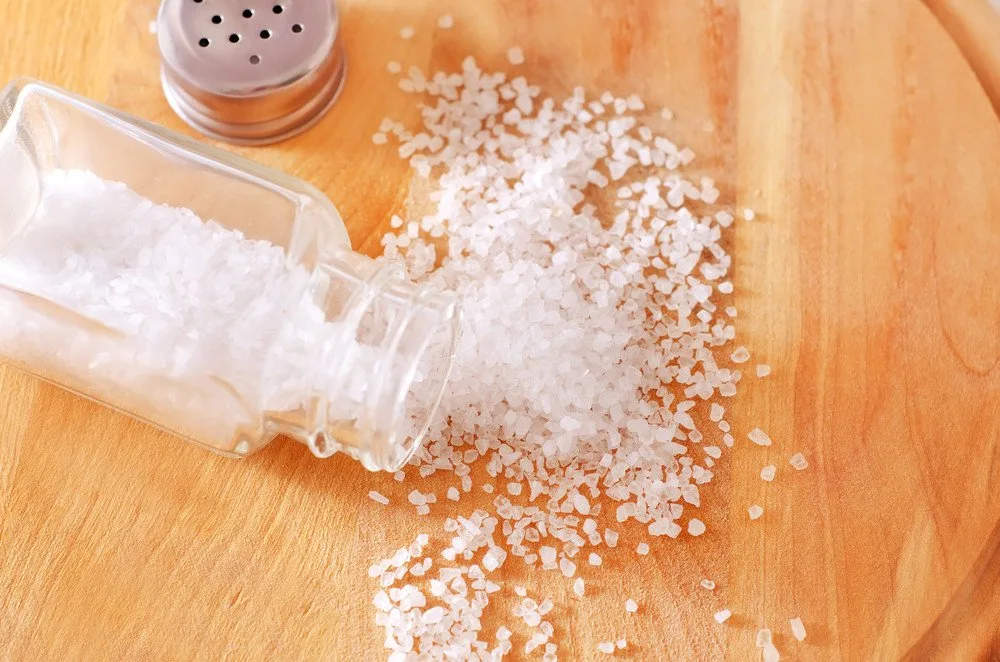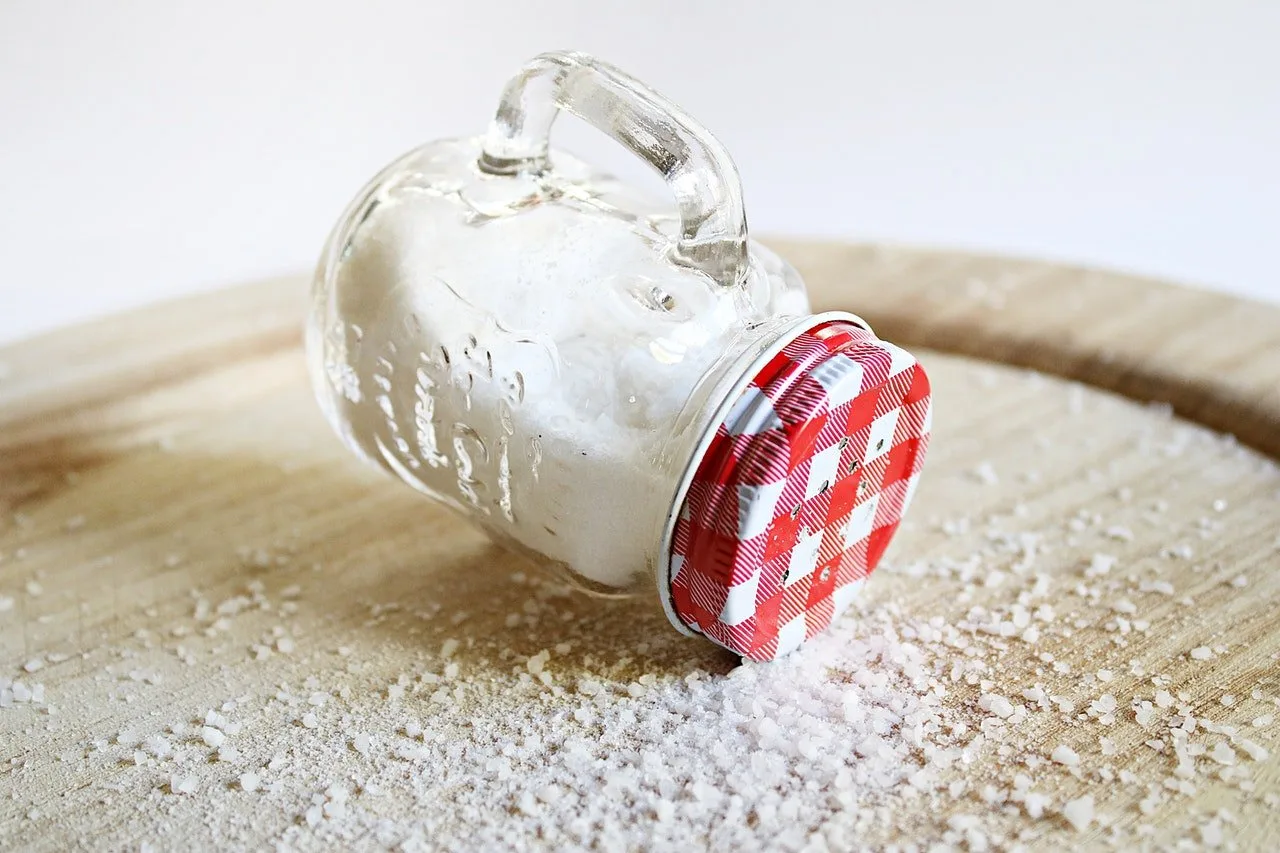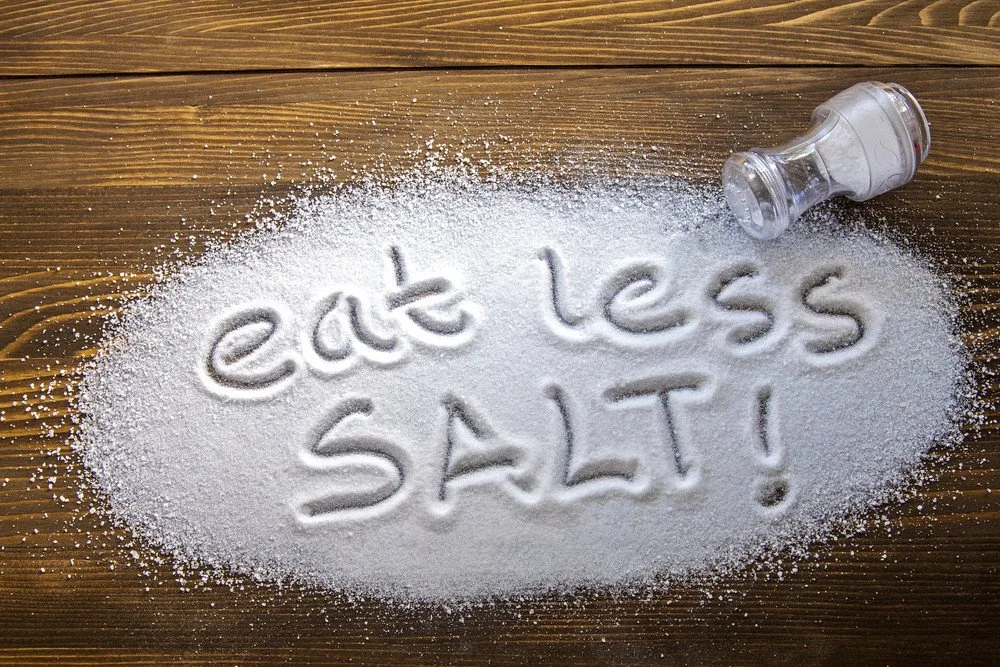Excessive consumption of salt can have a destructive impact on your cardiovascular system. This in turn may compromise your healthspan.
The dangers of hypertension
According to Professor Pamela Naidoo, CEO of the Heart and Stroke Foundation South Africa (HSFSA) uncontrolled hypertension puts patients at an increased risk of heart attack, stroke, heart failure and pulmonary hypertension, as well as kidney disease. This places an enormous burden on a country’s healthcare resources. There’s a strong correlation between increased dietary sodium (salt) intake and elevated blood pressure. The World Health Organisation (WHO) recommends no more than 5g per person of salt per day. However, many foods exceed that, and the WHO estimates that the actual global dietary salt intake is almost double this, which is of concern,” remarks Naidoo.
Cutting back on salt

Gayvoronskaya_Yana/Shutterstock
Thousands of lives could be saved each year if salt consumption was curbed to help prevent hypertension in the first place.
.
Eating too much salt can lead to hypertension (high blood pressure), which is a major risk factor for heart disease and stroke. Processed and packaged foods are responsible for most of the salt in our diet. Since people aren’t adding salt to these products themselves, they don’t realise how much salt they contain and the harm that it’s causing.
Prof Naidoo said excessive salt consumption is known to drive hypertension. Blood pressure that exceeds 140/90 is dangerous. “We often advise the public to read food labels and to check for sodium levels, but in the rushed society we live in, many don’t take the time to do so and, when they do, it can be confusing,” she says.
Hidden salt
Most people already know that chips and roasted nuts are high in salt, but it’s the “hidden salts” in processed food that consumers aren’t aware of.

Photo by Ryan Quintal on Unsplash
It is important to be mindful of which foods to avoid or limit based on sodium (or salt content). Some of these include:
- cheese, flavoured cream cheese, and cottage cheese,
- tinned foods, especially those preserved in brine,
- stock powder or cubes, soup powder or tinned soups,
- marinades or marinade powders,
- olives and pickles,
- processed meat, such as polony or baloney, ham, salami, turkey, sausages, viennas
- Take-outs, like burgers, fish and chips, crumbed chicken, as well as pizzas and Chinese takeaway
- seasoning salts, like barbeque or chicken spice, and salty spreads, including margarine, butter, and meat spreads,
- cured meat and fish,
- instant noodles with flavouring,
- Worcestershire sauce and soy sauce,
- crisps, salted biscuits and crackers, as well as ready-made popcorn.
How exactly does salt intake influence blood pressure?
There are a multitude of studies that show how limiting one’s salt intake positively impacts blood pressure.
“Clinical studies have shown time and time again that too much salt imbalances the Renin-Angiotensin-Aldosterone System (RAAS). This hormone system is essential for regulating blood pressure and fluid balance in the body. When the RAAS doesn’t function properly, it leads to sodium and water retention that increases vascular resistance and blood pressure, increasing the risk of CVD.”
Salt, which is also referred to as “sodium chloride”, consist of 40% sodium and 60% chloride. One teaspoon of salt is approximately 5 grams and therefore contains 2 grams (2 000 mg) of sodium.
The Dash Diet
A randomised clinical trial of hypertensive patients consumed 2,9 g of salt daily, following the DASH (Dietary Approaches to Stop Hypertension) diet. It had a profound effect in lowering blood pressure in just 30 days.
The DASH diet, which is high in lean protein, fruit, vegetables, beans, nuts, whole grains and low-fat dairy, is also low in salt and sugar, and is recommended for a healthy heart.
The bottom line
Dietary interventions, including sodium reduction, are extremely important in the management of hypertension. Further research shows that reducing blood pressure by just 10/5 mmHg is associated with a decline in:
- all cardiovascular disease events by 20 %
- all-cause mortality by 10–15 %
- coronary events (heart attack) by 20 %
- Stroke by 35 %
- heart failure by 40 %.
Ultimately, it’s up to each one of us to stay on top of our blood pressure. We need to keep it where it needs to be by exercising and following a healthy eating plan. Knowing what food contains more or less salt, will help us to understand what is helping or harming the health of our hearts,




![women [longevity live]](https://longevitylive.com/wp-content/uploads/2020/01/photo-of-women-walking-down-the-street-1116984-100x100.jpg)










